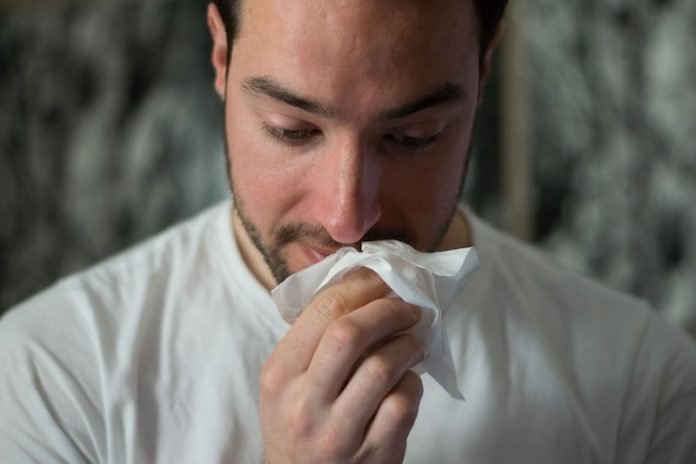
The body’s first encounter with SARS-CoV-2, the virus behind COVID-19, happens in the nose and throat, or nasopharynx.
In a recent study published in the journal Cell, researchers found that the first responses in this battleground help determine who will develop severe disease and who will get through with mild or no illness.
The study is from Boston Children’s Hospital and elsewhere. One author is José Ordovás-Montañés, Ph.D.
In the study, the team comprehensively mapped SARS-CoV-2 infection in the nasopharynx. They obtained samples from the nasal swabs of 35 adults with COVID-19 from April to September 2020, ranging from mildly symptomatic to critically ill.
They also got swabs from 17 control subjects and six patients who were intubated but did not have COVID-19.
To get a detailed picture of what happens in the nasopharynx, the researchers sequenced the RNA in each cell, one cell at a time.
The team found SARS-CoV-2 RNA in a diverse range of cell types, including immature ciliated cells and specific subtypes of secretory cells, goblet cells, and squamous cells.
The infected cells, as compared to the uninfected “bystander” cells, had more genes turned on that are involved in a productive response to infection.
The key finding came when the team compared nasopharyngeal swabs from people with different severity of COVID-19 illness:
In people with mild or moderate COVID-19, epithelial cells showed increased activation of genes involved with antiviral responses—especially genes stimulated by type I interferon, a very early alarm that rallies the broader immune system.
In people who developed severe COVID-19, requiring mechanical ventilation, antiviral responses were markedly blunted.
The team says everyone with severe COVID-19 had a blunted interferon response early on in their epithelial cells, and were never able to ramp up a defense.
Having the right amount of interferon at the right time could be at the crux of dealing with SARS-CoV-2 and other viruses.
It is possible that people with a muted interferon response will be susceptible to future infections beyond COVID-19.
If you care about severe COVID, please read studies about this stuff in the body may prevent severe COVID-19 infection and the findings of scientists confirm new way to treat severe COVID-19.
For more information about severe COVID and your health, please see recent studies about these 2 anti-inflammatory drugs may improve recovery from severe COVID-19 and results showing a big signature of severe COVID-19.
Copyright © 2021 Knowridge Science Report. All rights reserved.



